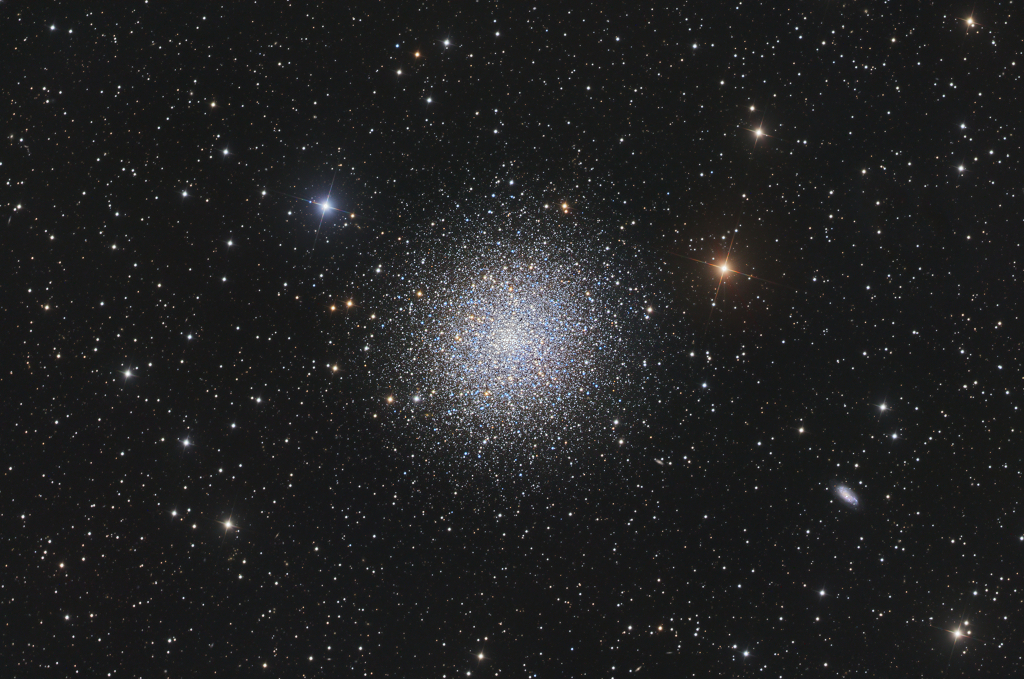2021年05月20日
M13: The Great Globular Cluster in Hercules
Image Credit & Copyright: Martin Dufour
Explanation: In 1716, English astronomer Edmond Halley noted, “This is but a little Patch, but it shews itself to the naked Eye, when the Sky is serene and the Moon absent.” Of course, M13 is now less modestly recognized as the Great Globular Cluster in Hercules, one of the brightest globular star clusters in the northern sky. Sharp telescopic views like this one reveal the spectacular cluster’s hundreds of thousands of stars. At a distance of 25,000 light-years, the cluster stars crowd into a region 150 light-years in diameter. Approaching the cluster core upwards of 100 stars could be contained in a cube just 3 light-years on a side. For comparison, the closest star to the Sun is over 4 light-years away. The remarkable range of brightness recorded in this image follows stars into the dense cluster core. Distant background galaxies in the medium-wide field of view include NGC 6207 at the lower right.
Tomorrow’s picture: pixels in space
M13:武仙大球状星团
影像提供与版权: Martin Dufour
说明: 在1716年,英国天文学家哈雷写下了这个注记:「它只是夜空的一个小亮斑,不过当夜空清朗无月时,用肉眼就能看见它。」 如今我们当然知道所谓的”它“是M13,一个位在武仙座的大球状星团,同时也是北天最明亮的球状星团之一。类似上面这种清晰的望远镜影像,显示这个的庞大星团拥有数十万颗成员星。以这个星团25,000光年的距离来估算,星团的成员星挤在直径为约为150光年的范围内。而在星团的核心附近,边长3光年的立方空间内就有100颗恒星。相较之下,离太阳最近的恒星超过4光年远。这幅影像的亮度范围极为广泛,故能记录到位在致密星团核心的成员星。在这幅中等视野的影像里,还可见到包括右下角NGC 6207在内的遥远背景星系。
明日的图片: pixels in space



